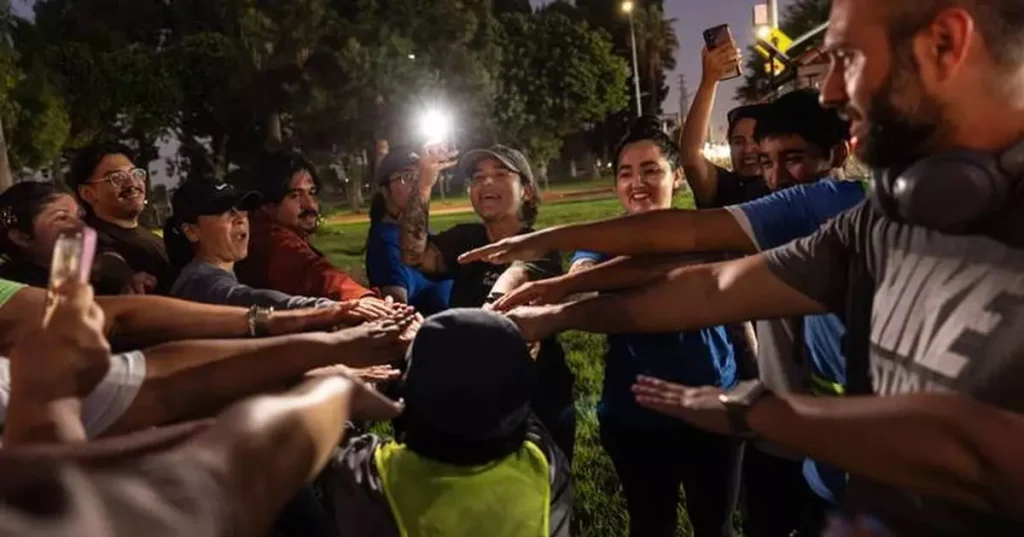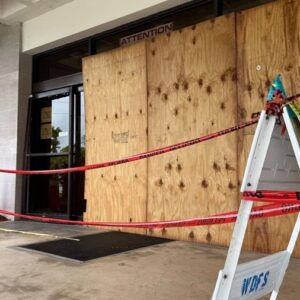Immigration Raids
In Huntington Park, a largely Latino suburb of Los Angeles, a local running club has taken on a role far greater than fitness. Founded two years ago by Iris Delgado, the Huntington Park Run Club was initially created to connect runners and push for safer streets. But as federal immigration raids intensified in 2025, the group’s mission shifted—becoming a lifeline of safety, solidarity, and quiet resistance.
Their motto, “keeping each other safe,” now extends beyond crosswalks and bike lanes to include warning neighbors of raids and sharing legal resources. At every meet-up, Delgado hands out flyers explaining immigrant rights, while a bike marshal rides ahead to ensure the group remains together and secure.
Running Through Uncertainty
The risks are close to home. Less than a mile from the club’s route, a Home Depot parking lot has been targeted repeatedly by immigration raids. Nearby, a family was jolted awake when federal agents blasted open their door in search of a suspect, charges that have since been dismissed.
Despite the fear, Delgado insists the runs must continue. “It’s important to maintain a space for people to come and decompress, and feel safe,” she said.
For Evelyn Romo, 25, joining the group after college was more than exercise—it became a form of defiance. “Continuing to take up space, even in the form of running, is a form of protest,” Romo said.
The Shadow of Immigration Raids
Los Angeles County, home to nearly 10 million residents, has been transformed by the Trump administration’s ramped-up immigration enforcement. With roughly a third of residents born abroad, raids ripple through communities regardless of status.
Huntington Park and nearby cities even canceled public events such as Fourth of July celebrations, as families chose to stay indoors. Some high schools have gone into lockdown when raids occurred nearby, amplifying the climate of fear.
Community members say the impact is universal. Marco Padilla, 18, who joined the run club shortly after it launched, recalls friends’ parents warning them to avoid parks or public gatherings. He remembers his high school senior breakfast being interrupted by shouting as armed immigration officers moved outside the gates. “Some people have chosen to be hidden,” he said, “but for our group, we decided to do the opposite.”
Best Personal Loan 2025: Unlock Financial Freedom with Quicken Loans

Building Support and Resistance
The Run Club has taken practical steps to support vulnerable neighbors. They’ve raised $8,000 for day laborers—many of whom wait for jobs outside Home Depot locations, now heavily targeted by immigration patrols. Members are also trained in documenting raids safely, sharing information through group chats, and alerting the community in real time.
Delgado stresses that the club doesn’t ask about members’ immigration status. Instead, it operates on trust and solidarity. “Our main community value is to keep each other safe and look out for each other,” she said. “That agreement is part of our culture at this point.”
More Than Running
What began as a push for safer streets has become a symbol of resilience in Huntington Park. The Huntington Park Run Club embodies how ordinary activities—like jogging through familiar streets—can transform into powerful acts of presence and unity.
In a climate of fear, the runners continue to lace up their shoes, determined to reclaim their space, mile after mile.






